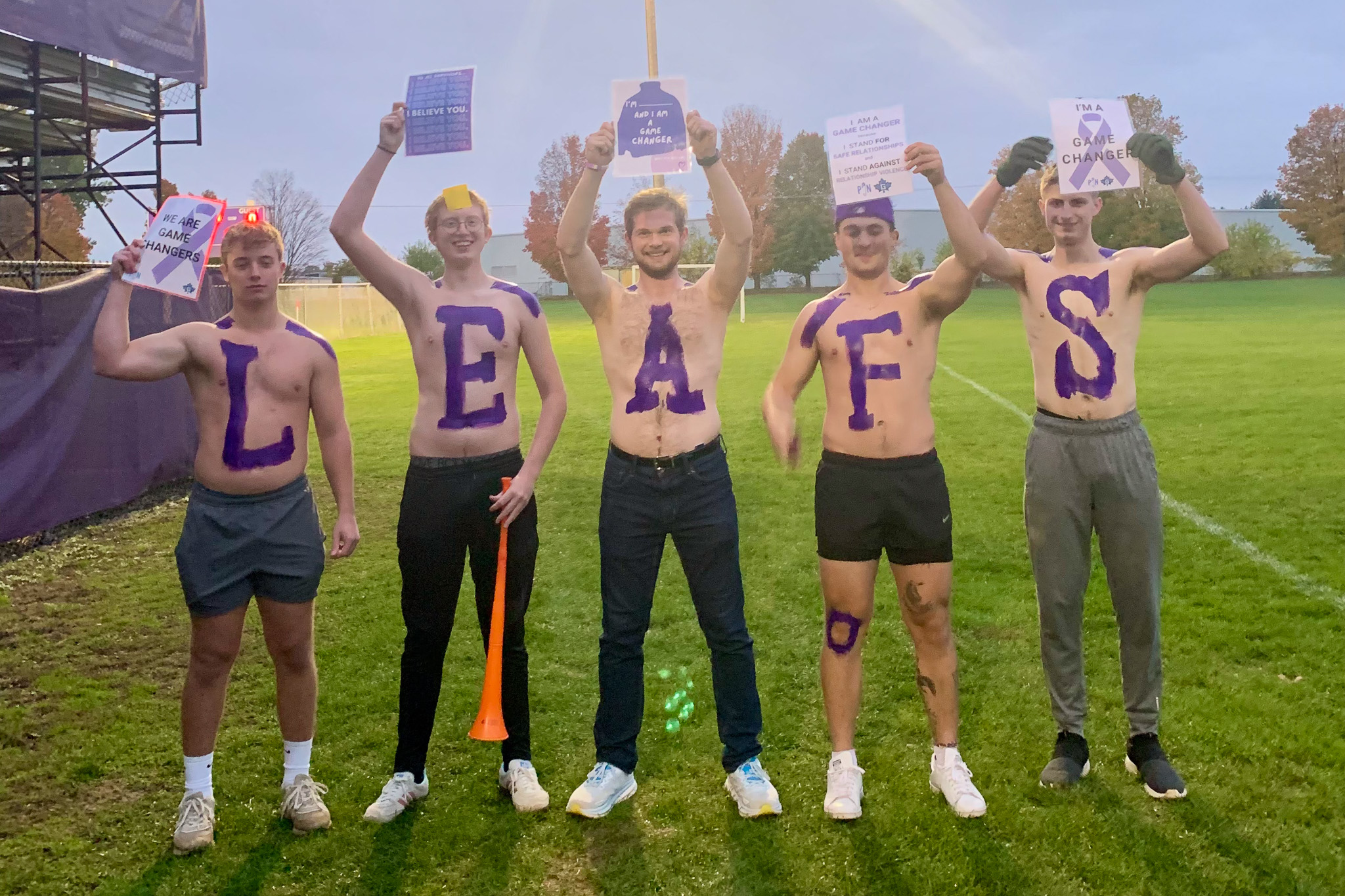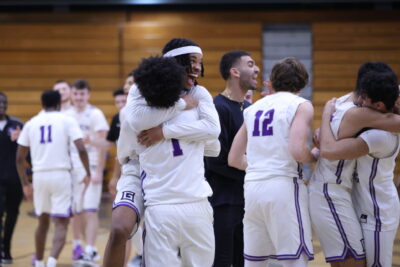This past weekend, the Prevention Intervention Network and the Campus Activities Council collaborated on an interpersonal violence awareness event at the volleyball and soccer games.
A table with flyers, statistics and posters was set up at the entrance of each game. Signs saying “Enough is enough,” “We stand against domestic violence” and “I’m _____ and I am a game changer” (the blank for a name) were laid out for people to pose with and snap pictures. They were also encouraged to post these photos with PIN’s Instagram handle as a way to spread awareness, which is PIN’s main objective.PIN supports those who have experienced or are experiencing interpersonal violence, educating the community and providing students with a safe space where they can reach out.
A group of concerned students started PIN in the spring of 2015 during a time when they felt there was a lack of conversation around interpersonal violence happening on campus. It has developed into a network of faculty, students and resources filling that gap.
“It’s not only physical violence,” said Fernando Daza, a PIN educator and sophomore double-majoring in business and peace, justice and conflict studies. “It can be psychological violence; it can be financial violence; it can be verbal — any type of violence that involves something that can affect you mentally [or] physically that can affect your performance.”
This semester, PIN is working to be more active with students they don’t usually interact with, like athletics.
Emily Hahn, program director for sexual assault prevention, education and advocacy, said, “We’re talking about prevention. What we want to do is … really about culture change and so you want to get as many people to be part of the solution as possible.”
“Since athletics are such a big part of this campus, it’s just a really great community for us to partner with to raise awareness and give people the tools to give back to that culture.”
The event included PIN members handing out keychains and stickers, staging a “purple-out” and sharing facts about interpersonal violence at half time.
Antoinette Mpawenayo, a PIN educator and senior social work major, said, “This event is just the beginning in closing the gap between PIN and athletes.”
Yvonne Friedmann, a sophomore exercise science major on the women’s soccer team, suggested PIN could connect with athletes by talking to the coaches.
How PIN will continue to include athletics in their programming is yet to be seen, but Kennedy Stewart, a sophomore PIN educator and elementary education major, said, “If we were to show that athletes stand for this … that’s huge.”
A correction was made on Oct. 30, 2023: An earlier version of this article had an incorrect photo attribution. It was contributed by PIN.


